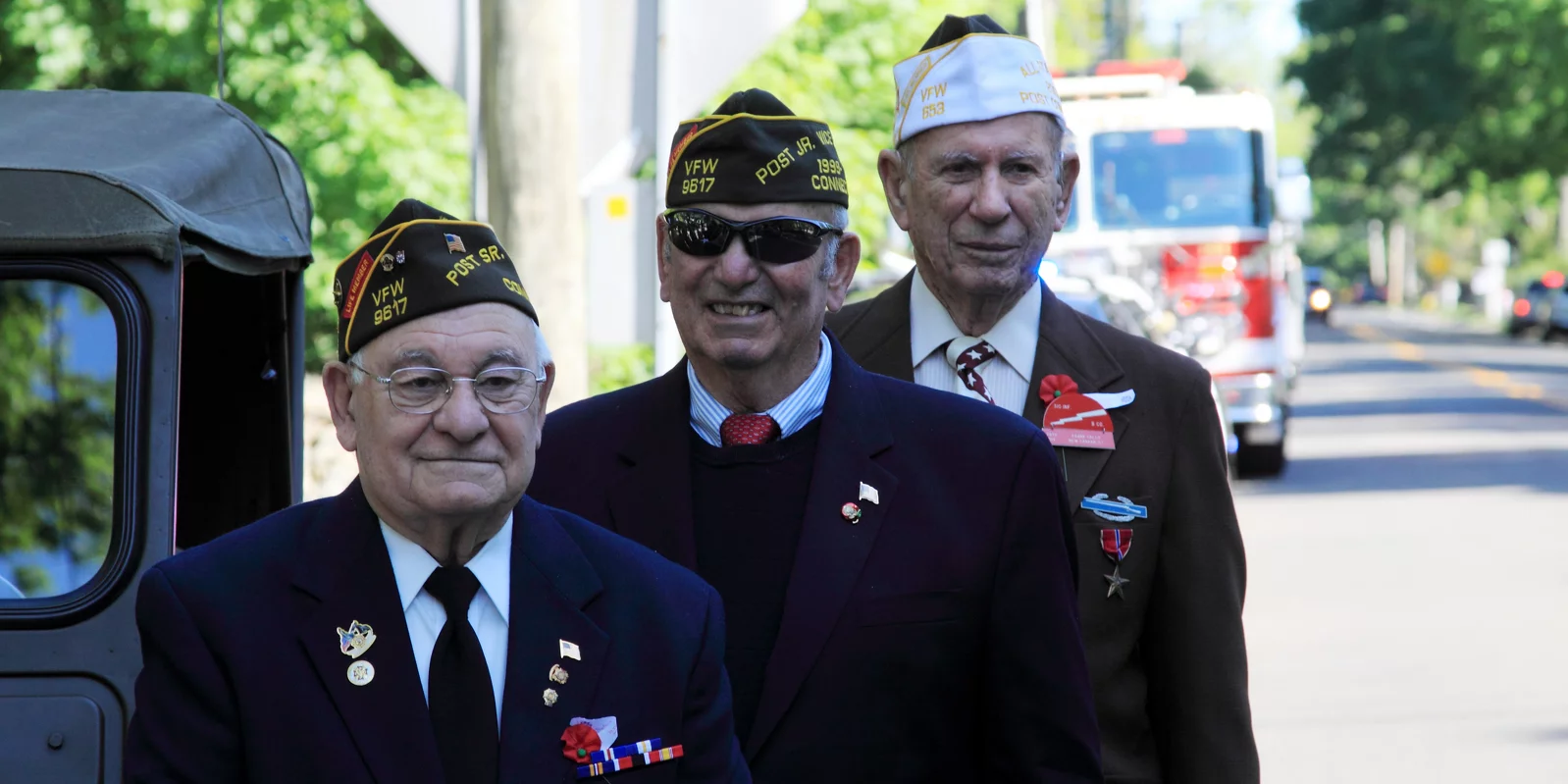May is Military Appreciation Month
15 Things Veterans Want You to Know -Questions with commentary by Joe Agnello, Transitions Bereavement Coordinator
May is designated as Military Appreciation Month! It is a special month for all men and women who served or are serving in the military. We continue to pause on Memorial Day in remembrance of the sacrifices our fallen heroes made for us. If you need to get sensitive to what Memorial Day exists for, watch the movie “Hacksaw Ridge,” the story of a combat medic!
In May, we have other anniversaries to remember: Military Spouse Appreciation Day and Armed Forces Day! It is not because veterans are more important than anyone else, but they did something special for everyone else.
Healthcare professionals can learn something special about Veterans who are patients. Psych/Armor, a nonprofit organization dedicated to educating the public about military culture, is offering a course with CEU’s created to educate anyone who works with, lives with, or cares for veterans. Go to PsychArmor.com and explore “15 Things That Veterans Want You to Know.” They asked hundreds of veterans what they want healthcare providers to know about them. The course concludes with five culturally competent questions you can ask Veterans.
The research question posed to veterans was: “What is the one thing you would want your doctor, nurse, therapist, employer, etc. to know about you as a Veteran?” The fifteen categories of responses are listed here, with my personal comments following each one. These are some of the ways you can show appreciation for our military this time of year.
- “We are not all soldiers.” Know that marines are still marines no matter how old they get. Others were or are soldiers and sailors but do not forget the Coast Guard. They are “Coast Guardsmen”, but it is OK to call them “Coasties.” Guardsmen are members of the National Guard, who are genuine members of our military. Call all of us “Veterans” not “soldiers.” Recognize our branch. Sailors, marines, airmen, coasties and guardsmen are not soldiers. Soldiers are soldiers! A final thought regarding who is in the military – war dogs are enlisted! Don’t forget them because many are left behind after conflict.
- “Reserves are part of the military.” We are either on active duty, in the reserves or discharged. Veterans who reupped for an extended time, 20 years or more, are retired. Most of us got out, not retired. I was in the reserves for two years because our constitution required it. Just know that reservists are military. Thank them too.
- “Not everyone in the military is infantry.” Every one of us was trained and served in a special job. Ask us what our job was! We were not all in combat! For every combat veteran there were five non-combat veterans. They were the courageous ones, but they could not have been enabled without the rest of us backing them up.
- “Military has leaders at every level in the chain of command.” Some of us were officers and gentlemen as declared by the US Constitution. Others were simply Government Issue – GIs! We had serial numbers just like the equipment we used. How would that make you feel?
- “Military is always on duty.”
- “Take pride in appearance and conduct.” I served in the 60’s, yet to this day I pay attention to my “gig line.” I know if somebody’s zipper and shirt buttons do not line up, they are not a Veteran. I still walk with my hands “cupped.” Did you ever notice how some people eat their meals extremely fast? This may be a sign that they’re a Veteran. Those habits are hard to break. Veterans tend to be stoic and stubborn. That came with the job.
- “We did not all kill someone.” Don’t ask any Veteran if we did! Please don’t ask us if we ever killed someone. I was asked that only once, but I was an airman! Most Veterans who did are not proud of it. They were following orders. We just did our jobs and received an honorable discharge. Honor us!
- “We do not all have PTSD.” I have worked with thousands of homeless combat veterans who drank alcohol to stay calm. They were called drunks and winos, but I thought of them as heroes. Many of them told me what they experienced in combat, and it was PTSD. They just were not treated for it. It helps if you get up close and personal and ask them to talk about what happened in their military experience.
- “Those of us who do have invisible wounds of war are not dangerous or violent.” 20% of Veterans returning from Afghanistan have Traumatic Brain Syndrome. There are many stress-related disorders and hidden injuries that Veterans have learned to live with. It does not make them dangerous; it makes them hurt! Every war has a different name for it – shell shock, soldier’s heart, combat fatigue, or war neurosis. Did you know that in the US Civil War, our combatants with “soldier’s heart” were considered cowards and faced a firing squad? If they have PTSD, they probably also have Adverse Childhood Experiences as well. Treat the trauma!
- “It’s hard to ask for help.” Given that Veterans see themselves as the helpers, it is hard to ask for help. Just help them. They probably won’t resist care when they know they need it. Just find creative ways to ask for their cooperation. Tell them you need their help!
- “Our military service changes us.” Most Veterans were teenagers when they joined. There is a difference between the volunteers and the drafted, but all of us matured. I was a crew chief, responsible for multimillion dollar aircraft when I was 19 years old. We all had to grow up fast. So, it is characteristic of Veterans to joke and “bust chops.” We tease one another. It is a little piece of childhood that we cling to.
- “We differ in how much we identify with the military after we leave active duty.” Some of us are proud of our military service and some are not. Don’t assume we are happy about it. If you meet a Veteran, don’t just say “Thank you for your service” and keep walking. Ask them what they did in the military.
- “Our families serve with us.” In my experience, it was letters and occasional phone calls from family and friends that encouraged me. For the younger Veterans, cell phones and the internet made a significant difference. An occasional “care package” from home was often shared with the whole team. Just know that families made a sacrifice too, especially when their loved ones had a service-connected disability, were missing in action, prisoners of war, or died in combat. Honor their spouses and families too.
- “We would die for each other and our country.” And some did! Many families have a fallen hero. If you find out they lost someone in the military, let them know you are sorry for their loss. And never say “Happy Memorial Day”. It is a time to remember, mourn, and pay respects.
- “We all made this sacrifice for one reason: to serve something more important than ourselves.” Truthfully, all I wanted was respect. I am sure that is true for most Veterans. For a while, there was a campaign to call a Veteran who you know on the 22nd of the month to ask how they were doing. That is because in 2013 a study found that 22 Veterans died by suicide every day. The number has come down since then, but it is a significant number at 20 deaths by suicide every day. If every person who knows a Veteran simply asks them how they are doing and stops to listen to them, the stats will come down. There is so much more we can say about suicide, but that is the subject of a future article.
For more information about the Psych/Armor Institute and their courses, go to their website at:

